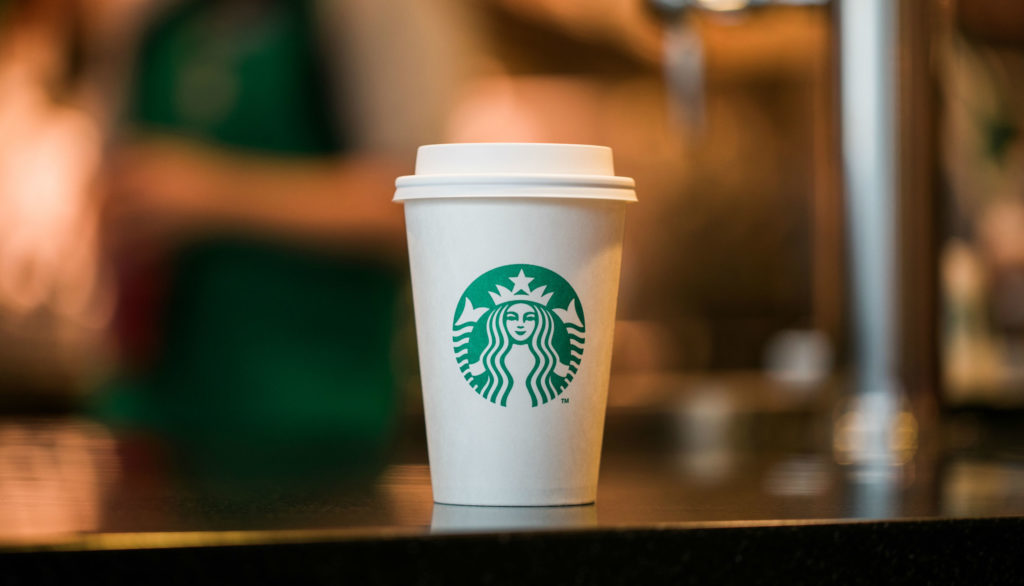by Franklin Templeton Investments
The Digest
Global equities were in risk-off mode last week as caution rose over the spread of a deadly virus. The new coronavirus outbreak started in China, but cases have now been confirmed in many other countries. Market commentators were quick to reflect on the SARS epidemic from 2003 as evidence of the economic impact of a similarly deadly infection. There was defensive tilt to sector moves whilst commodities were under pressure given fears over the impact on Chinese growth.
Coronavirus Risk
Equities were under pressure for most of last week with concerns heightened amidst the spread of a new strain of the coronavirus in China. Little was known about the new strain before health authorities warned late Monday that it could be spread via human-to-human contact. From an economic standpoint, whilst most of China prepared for Lunar New Year celebrations, an immediate concern is the impact on tourism and domestic travel. The New Year celebrations in China see the world’s largest migration of people. More broadly, investors are worried about any potentially material impact on economic growth in China. Also, with cases already confirmed across Southeast Asia as well as in the United States, France, Canada and Australia, concerns have risen that this could quickly become a global epidemic.
Global equity performance was very mixed last week as investors reacted to headlines on the extent of the spread of the virus. Stocks in the travel, retail and commodity space were particularly under pressure. The US Volatility Index, known as VIX, rallied into the end of the week, up as much as 22% on Friday 24th of January.1
Analysts have been quick to draw parallels to the 2003 outbreak of SARS in Southeast Asia. During the lifetime of that outbreak, Hong Kong experienced a steep decline in inbound visitation, while retail sales and house prices slid. It led to a double-digit percentage drop for Hong Kong’s stock market and a slowdown in growth for China’s economy. More broadly, global commodities came under pressure with obvious concerns over the impact on growth in the region.
In a similar move last week, commodities took a hit. Oil prices were down around 7% on the week, whilst copper also came off recent highs, down nearly 6%. Iron ore prices were also hit into the end of the week. The key question is the impact the outbreak of the virus will have upon demand in China, with markets seemingly taking the view that growth expectations will be revised lower.
Over the weekend, the China virus outbreak seemed to have worsened. As of this writing, there have now been at least 80 confirmed deaths, more than 2,000 confirmed cases in China whilst 30,000 people remain under observation. The New Year holiday has also been extended until February 2nd as the authorities take any precautions they can to manage the spread of the virus.
Bank of England: Will They, or Won’t They?
The Bank of England (BoE) makes its policy decision this Thursday (30th January). At the start of last week, we talked about how interest-rate cut expectations had been on the rise following a number of disappointing data releases and dovish commentary from voting members. Last week, we saw an important uptick in UK data. The employment rate hit a record high and a survey of UK manufacturers showed increased optimism, helping lead to a spike in the pound to back above US$1.31.
The key, however, was Friday’s strong forward-looking UK PMI releases, with the services and manufacturing numbers both beating estimates to see the composite figure jump to a 16-month high. With this, the market expectations of a rate cut had fallen back to below 60%, compared to highs of 70% last week.2 All eyes will be on Thursday’s decision, with the potential for volatility in the pound.
In other central bank news, we also had the latest meeting for the European Central Bank (ECB). Whilst the ECB kept rates on hold, a press release did note the launch of a review of the central bank’s monetary policy strategy. ECB President Christine Lagarde said that the central bank “will look at the implications of negative rates for an extended period and how that impacts the ability to act if needed”. The market inferred that this meant the ECB was generally comfortable with lower rates for longer. Eyes will also be on the US Federal Reserve (Fed) meeting on Wednesday. There are no expectations for any further cuts in the United States.
Last Week
Europe
European equities had a choppy week as headlines around the coronavirus tested investor sentiment. But some supportive macro data and an uneventful ECB meeting helped underpin sentiment. Better-than-expected German macro data helped lift German stocks. France’s equity market was a laggard, as large weightings in energy and luxury spaces dragged stocks down. The UK stock market was also softer as a stronger pound weighed on the export-heavy FTSE 100 Index.
Looking at sector performance across the region, utilities, financial services and real estate were the best-performing sectors. Autos, basic resources and travel & leisure were the worst-performing sectors on the back of coronavirus concerns.
Trade headlines: Looking at the main talking points last week, the World Economic Forum in Davos saw some interesting trade headlines. In particular, Europe and the UKs’ trade relations with the United States were in focus. Regarding the US-European Union (EU) relationship, US President Donald Trump was optimistic about the chances of the deal being done before the US presidential election in November. That would be a much faster turnaround than many envisaged. In addition, France and the United States agreed to postpone tax measures against one another.
Rhetoric around the United Kingdom was more fraught. After the UK confirmed plans for a digital services tax, US Treasury Secretary Steven Mnuchin threatened to impose tariffs on British car exports. In addition, UK officials said this week that a trade deal with the EU was the priority at the moment and there was no hard deadline for a deal with the United States.
Italian Politics: An interesting week in Italian politics. Firstly, Five Star Party Leader Luigi Di Maio resigned following a slump in support for the populist party. Recall, the Five Star and Democratic Party (PD) form the current coalition government. With Di Maio’s departure, there was even more focus on the regional election in the key Emilia Romagna region this weekend. The region is historically a left-wing stronghold, but the polls ahead of the elections were indicating that the centre-right’s candidate could have had a chance of winning.
Ultimately, the PD saw off the challenge for Matteo Salvini’s La Lega, with the PD winning 51% versus La Lega’s 43%. Interestingly, Five Star suffered a poor day at the polls, taking just 3.5% of the vote. The centre-right coalition did win in the Calabria region, the other Italian region where elections were taking place on Sunday. Italian debt markets have been benign since the PD-Five Star coalition took power and early snap elections were avoided.
Finally, Fitch raised Greece’s sovereign credit rating by one notch, BB with a positive outlook from BB-. With that, Greek bonds rallied to send 10-year yield to record low.
Americas
The global risk-off tone saw all major US indices trade lower, with the S&P 500 Index having its worst week since last August. Rotation was a theme, with value underperforming growth and momentum names from a style perspective as bond yields fell. Cyclicals also underperformed defensives, with concerns about the coronavirus weighing on investor sentiment. Crude oil fell sharply, hitting its lowest level since October last year. The move came despite data showing a decrease in inventories, with concerns that the virus could dent future demand.
On the macro front, a combined reading of manufacturing and services data improved in January. However, the details were mixed as manufacturing came in below estimates, whilst services surprised to the upside. The stronger headline reading saw the US dollar make small gains.
It was quieter on the trade front, but there were some headlines on Friday after Trump signed a proclamation increasing tariffs on derivative steel products and boosting duties on derivative aluminium products.
Asia
Clearly, the main focus for the region was the coronavirus outbreak, as discussed, which saw equities trade lower across the board. The moves were exacerbated by a number of market holidays as volumes were reduced.
Outside of this, guidance from the Bank of Japan (BoJ) was in line with expectations. The central bank increased its growth projection, but left rates and asset purchase targets unchanged.
Week Ahead
So far this week, we’ve had a reading of German business morale, which unexpectedly fell in January.
Politics
- Italian regional elections were held on Sunday, January 26th.
Economics
It’s a big week for data:
- Monday: US New Home Sales; German Business Confidence.
- Tuesday: US Consumer Confidence and Durable Goods Orders.
- Wednesday: US Wholesale Inventories; German & Italian Consumer Confidence; Italian Manufacturing Confidence & Economic Sentiment.
- Thursday: US GDP, Personal Consumption & Jobless Claims; Eurozone and German Unemployment; German CPI; Japanese Retail Sales.
- Friday: Eurozone GDP and CPI; China PMIs (scheduled, but may be delayed).
Monetary Policy
- US Federal Open Market Committee meets; interest-rate decision expected on Wednesday.
- Bank of England rate decision on Thursday alongside Governor Mark Carney news conference.
Holidays
- China remains closed all week.
- Hong Kong will be closed Monday and Tuesday.
- Australia, Malaysia, Singapore, South Korea and Taiwan all closed Monday.
Views You Can Use
Insight from Our Investment Professionals
Monitoring China’s Outbreak, and Other Potential Market Shocks
The Templeton Global Macro team takes a look at the implications of the coronavirus in China, and positioning for potential market shocks. Read More.
Leftist Party Win in Italy Marks Comfort With Status Quo
Italy’s regional election in Emilia Romagna resulted in a win for the centre-left coalition, a development that affirms the long period of leftist rule in one of Italy’s wealthiest regions. Our Head of European Fixed Income David Zahn weighs in on the market implications. Read More.
On My Mind: Oops! They QE’d Again
The US Federal Reserve (Fed) has gone back to expanding its balance sheet. Some claim that quantitative easing (QE) is back; the Fed denies it. What we call it isn’t the point, says Sonal Desai, Franklin Templeton Fixed Income CIO—what matters are the implications of this “permanently loose” policy stance for asset prices, investment strategy and market volatility. Read More.
Investors’ appetite across the globe for exchange-traded funds (ETFs) was strong in 2019 and shows little sign of slowing, according to Jason Xavier, our Head of EMEA ETF Capital Markets. He shares some of the themes and trends he sees ahead in 2020. Read More.
Allocation Views: Taking a Nimble Approach to 2020
Although easing US-China trade tensions have renewed investor optimism about global economic growth, Franklin Templeton Multi-Asset Solutions’ Ed Perks and Gene Podkaminer still see some potential geopolitical headwinds on the horizon. In the latest edition of “Allocation Views,” they share their concerns and explain why they continue to believe navigating challenges in the year ahead will require nimble management. Read More.
ESG Study: How Institutional Investors Embrace Responsible Investing
Responsible investing has gathered enough momentum in recent years to reach the mainstream. What is less clear is how far along global institutional investors are in the process of integrating environmental, social and governance (ESG) principles into their investment decisions. To find out, Franklin Templeton commissioned a comprehensive study across 21 markets, to see the extent of how responsible investing is incorporated into investment decisions. We highlight four themes to track the way asset owners are adopting responsible investing and ESG considerations over time. Read More.
For timely investing tidbits, follow us on Twitter @FTI_Global and on LinkedIn.
*****
Important Legal Information
This article reflects the analysis and opinions of Franklin Templeton’s European Trading Desk as of 27 January 2020, and may vary from the analysis and opinions of other investment teams, platforms, portfolio managers or strategies at Franklin Templeton. Because market and economic conditions are often subject to rapid change, the analysis and opinions provided may change without notice. An assessment of a particular country, market, region, security, investment or strategy is not intended as an investment recommendation, nor does it constitute investment advice. Statements of fact are from sources considered reliable, but no representation or warranty is made as to their completeness or accuracy. This article does not provide a complete analysis of every material fact regarding any country, region, market, industry or security.
Nothing in this document may be relied upon as investment advice or an investment recommendation.The companies named herein are used solely for illustrative purposes; any investment may or may not be currently held by any portfolio advised by Franklin Templeton.
Data from third-party sources may have been used in the preparation of this material and Franklin Templeton (“FT”) has not independently verified, validated or audited such data. FT accepts no liability whatsoever for any loss arising from use of this information and reliance upon the comments, opinions and analyses in the material is at the sole discretion of the user. Products, services and information may not be available in all jurisdictions and are offered by FT affiliates and/or their distributors as local laws and regulations permit. Please consult your own professional adviser for further information on availability of products and services in your jurisdiction.
What Are the Risks?
All investments involve risk, including possible loss of principal. The value of investments can go down as well as up, and investors may not get back the full amount invested. Stock prices fluctuate, sometimes rapidly and dramatically, due to factors affecting individual companies, particular industries or sectors, or general market conditions. Bond prices generally move in the opposite direction of interest rates. Thus, as prices of bonds in an investment portfolio adjust to a rise in interest rates, the value of the portfolio may decline. Investments in foreign securities involve special risks including currency fluctuations, economic instability and political developments. Investments in developing markets involve heightened risks related to the same factors, in addition to those associated with their relatively small size and lesser liquidity.
Past performance is not an indicator or guarantee of future performance.
Links to External Sites
Franklin Templeton Investments is not responsible for the content of external websites.
The inclusion of a link to an external website should not be understood to be an endorsement of that website or the site’s owners (or their products/services).
Links can take you to third-party sites/media with information and services not reviewed or endorsed by us. We urge you to review the privacy, security, terms of use, and other policies of each site you visit as we have no control over, and assume no responsibility or liability for them.
______________________________
1. The CBOE Volatility Index (VIX), is an indicator of market expectations of volatility implied by S&P 500 index options. Indices are unmanaged and one cannot directly invest in them. They do not include fees, expenses or sales charges. Past performance is not an indicator or guarantee of future performance.
2. Source: Bloomberg, as of 24th January 2020.
This post was first published at the official blog of Franklin Templeton Investments.














